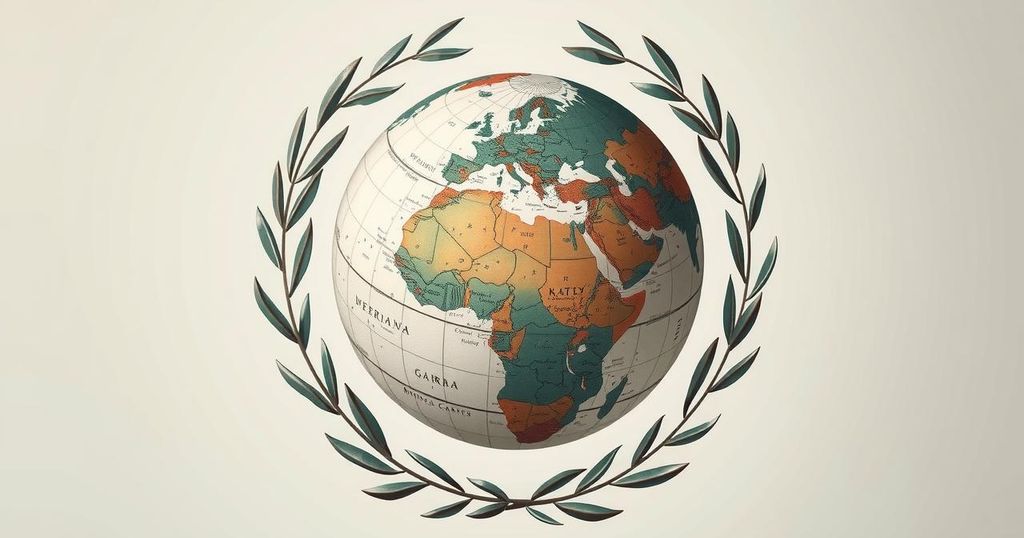Trump’s Palestinian Refugee Proposal Faces Resistance from Jordan and Egypt
President Donald Trump proposed that Egypt and Jordan accept more Palestinian refugees from Gaza, emphasizing the need for humanitarian aid amid ongoing conflicts. Both countries rejected the proposal due to economic and stability concerns. The situation highlights the complexities of Middle Eastern geopolitics and the enduring Palestinian crisis. Trump’s suggestion has left many U.S. allies puzzled regarding its feasibility.
President Donald Trump has proposed that Arab nations, specifically Egypt and Jordan, increase their intake of Palestinian refugees from Gaza. His comments came during a flight aboard Air Force One as he emphasized the need to address the humanitarian crisis in the region. After Hamas’s attacks on Israel in October 2023, many Gazans have become homeless due to ongoing military conflicts, with Trump suggesting that relocating nearly 1.5 million individuals might alleviate some of the turmoil.
In a conversation with Jordan’s King Abdullah, Trump expressed his desire for Jordan to accept more refugees, highlighting the dire situation in Gaza. However, both Jordan and Egypt have pushed back against this idea, expressing concerns about the potential ramifications for their economies and regional stability. They worry that accepting large numbers of refugees would lead to lasting changes in demographic and political dynamics within their borders.
Jordan’s foreign minister made clear on Sunday that the country opposes Trump’s proposal unequivocally. Meanwhile, Egypt’s leadership voiced apprehension regarding the risks of escalating regional tensions should Palestinians be temporarily or permanently relocated there. Both governments fear that such actions could hinder the possibility of a two-state solution in the long run.
Although Trump has some leverage over Jordan due to U.S. financial assistance, his idea has left many political allies in the United States confused. Notably, Senator Lindsey Graham expressed skepticism about the feasibility of Trump’s plan, questioning the practicality of relocating all Palestinians. He suggested that continued dialogue with Middle Eastern leaders is necessary to develop viable solutions.
Trump also reaffirmed his support for Israel by announcing the provision of heavy munitions to the country, a move that contrasts with prior hesitations shown by former President Joe Biden. Egypt and Jordan maintain their peace treaties with Israel while advocating for the establishment of a Palestinian state within the territories seized during the 1967 conflict. Trump’s comments on Gaza’s status prompted concern about the long-term implications for Palestinians and the broader geopolitical landscape.
The backdrop of this discussion is the ongoing humanitarian crisis in Gaza, following the outbreak of violence in October 2023 instigated by Hamas’s assault on Israel. The aftermath has displaced a significant number of Gaza residents, leading to mounting international pressure to accommodate refugees. Both Egypt and Jordan have complex historical relationships with the Palestinian issue, bearing the burden of hosting millions of Palestinian refugees in their territories, which heightens their apprehension to accept more. This situation remains sensitive, as both states strive to maintain regional stability and support for a Palestinian state while wrestling with their domestic challenges.
In conclusion, President Trump’s suggestion to have Jordan and Egypt accept more Palestinian refugees has faced substantial resistance from both nations due to fears of destabilization and the long-term impacts on the Palestinian issue. The complexities of Middle Eastern geopolitics and the historical context of the Palestinian plight play a crucial role in shaping the responses from these Arab nations. As discussions continue, the need for a reliable and sustainable solution for the refugees remains paramount.
Original Source: apnews.com




Post Comment